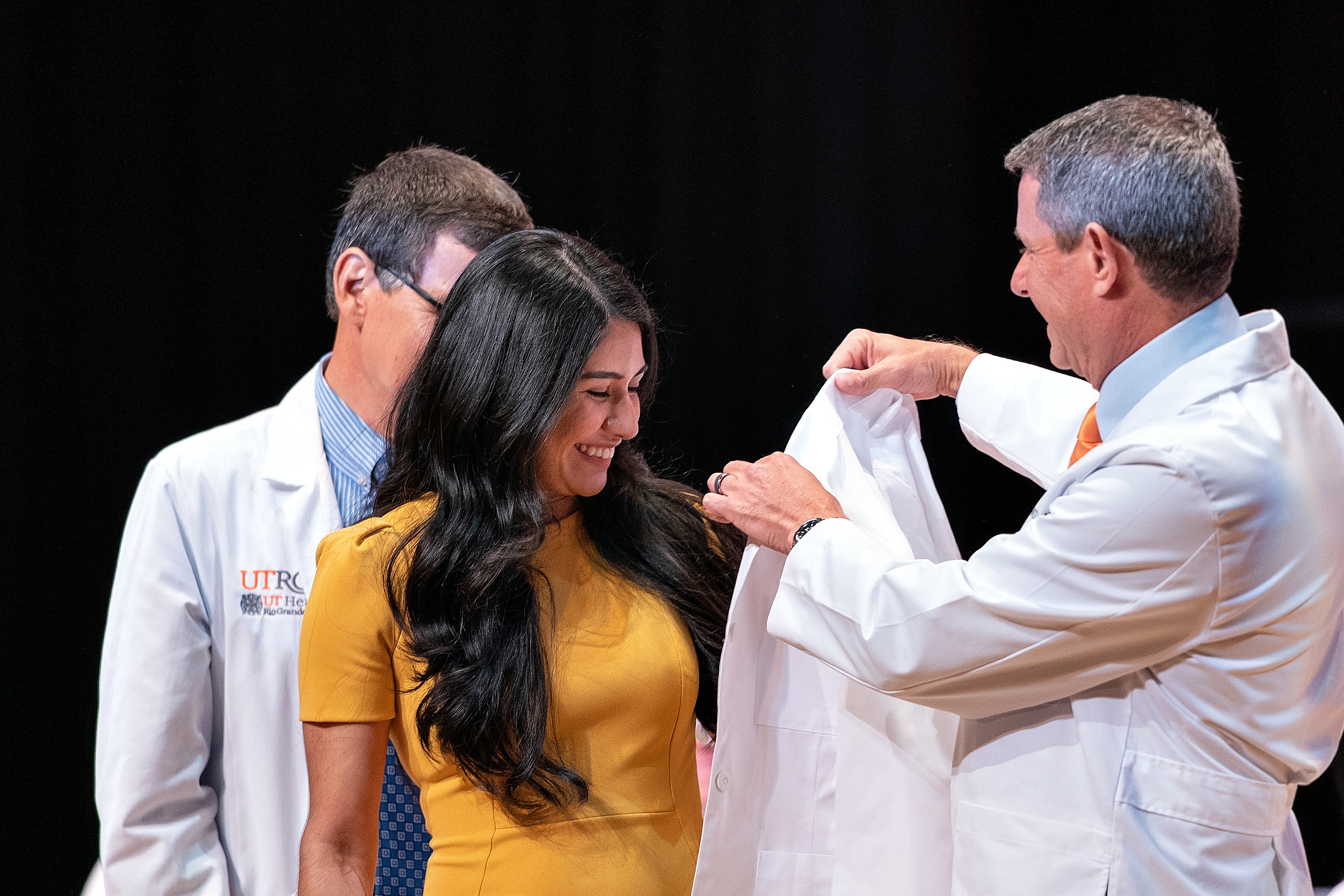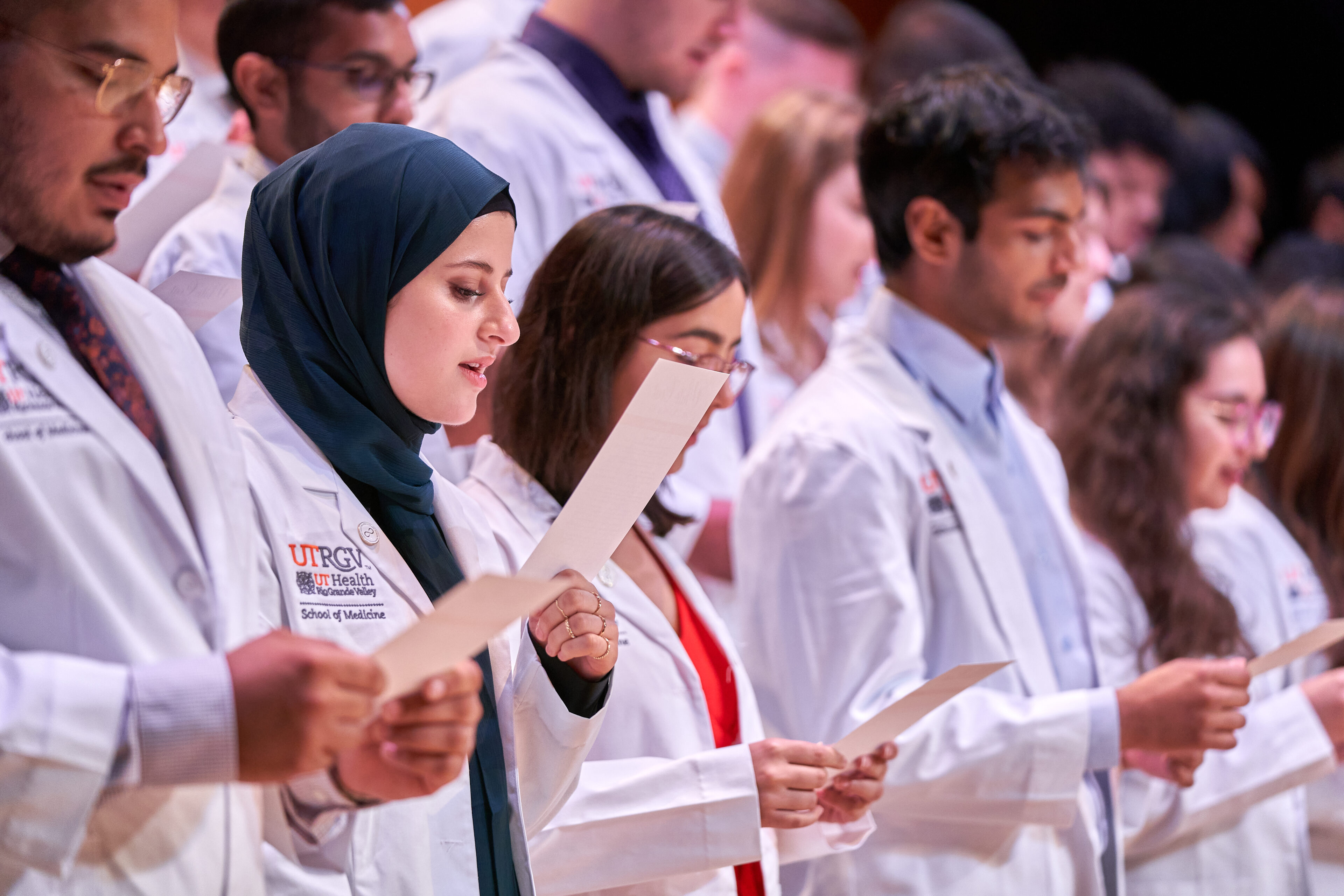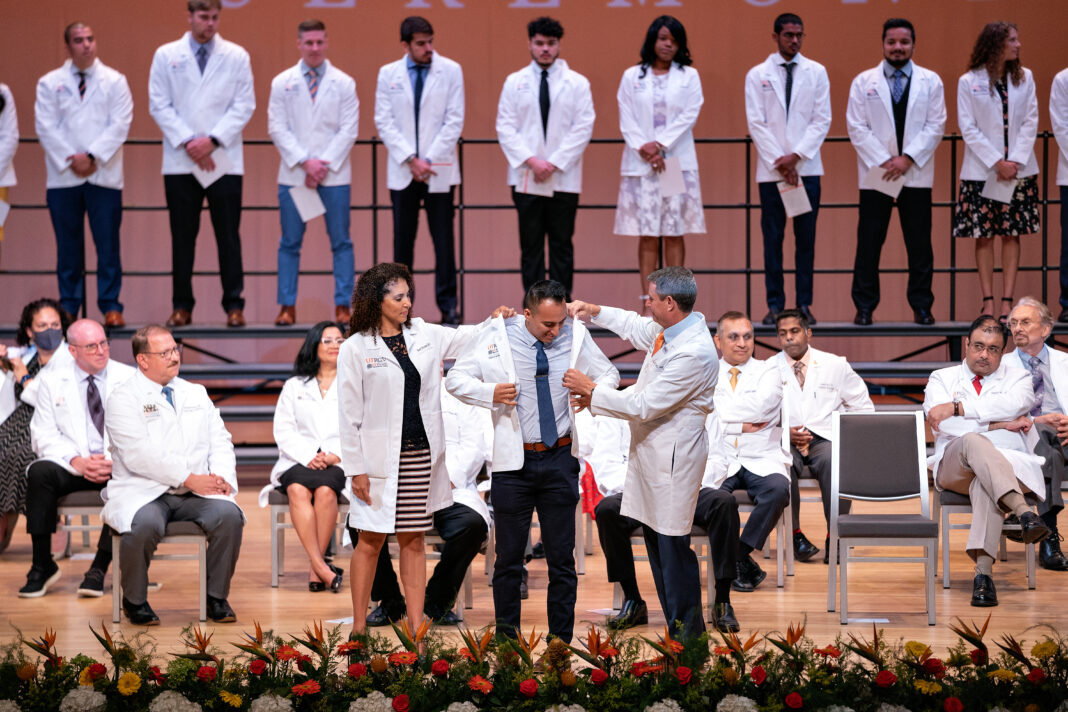EDINBURG — One by one, 55 young men and women stepped onto the stage here at the University of Texas Rio Grande Valley Performing Arts Complex on Saturday wearing slacks and ties and formal dresses, and stepped off of it clad in a white coat.
Those men and women are the incoming class of the UTRGV School of Medicine, the class of 2025 — its sixth class.
The 55 prospective practitioners were winnowed down from a pool of 7,545 applicants; 24 of the incoming students are from the Rio Grande Valley and 12 are UTRGV grads.
They stood together side by side after donning their medical coats, and were met by the sound of shouts and applause and iPhone lenses pointed their way for some of their first photos as med students.
The incoming classmates weren’t the only newcomers at Saturday’s White Coat Ceremony. They were joined by Dr. Michael Hocker, the school of medicine’s new dean, who’s been on the job for just under a month.
A self-described servant-leader and people-person who says he’ll emphasize building personal bonds with stakeholders in and out of the school of medicine, Hocker took over for Dr. John Krouse, who stepped down in June after holding the post for four years and leading the school through a hectic pandemic year.
Saturday was one of Hocker’s first public appearances and one of his first opportunities to put that people-person persona on display for a crowd. He didn’t miss a beat, cracking jokes and ribbing associate deans.

Hocker opened by telling the class of 2025 good morning; their reply was lackluster.
“That was weak,” Hocker said wryly before repeating his good morning.
“There we go,” he said with a thumbs up and a grin when he got an audible reply.
It was a stark contrast from Krouse. Proper and polished, a former professional oboist and certified sommelier, the previous dean was a businessman-dean, though one who consistently emphasized the importance of compassion and care.
A veteran from a blue collar family, Hocker is more like a preacher-dean: good natured humor, personal anecdotes and moral charges.
Hocker threaded the needle between that humor and the moral charges of the profession. He likened the new med students to superheroes, white coats for capes. Those coats come with responsibilities, he said, among them adherence to transparency, loyalty, empathy and humanism.
“Each one of you students today, each one of you sitting out here has a certain set of values. And in the medical profession we have values of honesty, integrity, doing the right thing,” he said. “That’s important every time you put on that white coat. You have to trust each other, you have to trust your team around you and work with them. Be there when they need you when you’re succeeding, but also stepping up when you’re failing to do the right thing.”

The new dean referenced the pandemic as well, an ongoing crisis UTRGV’s medical field students and faculty have helped respond to for over a year.
“I was hoping that when I came here COVID would go away. I think we’ve all been hopeful for that, it’s been a challenging year and a half to two years, especially in the health professions. I urge you, please continue to socially distance, wear a mask,” he said. “If you’re not vaccinated or somebody in your family isn’t vaccinated, please consider that, because I think that’s the path that will continue to move us forward, and we need to resume a sense of normalcy and we’re going to need to continue to fight through this, especially as I heard the numbers again this morning continue to climb.”
The 55 men and women in crisp white coats may well have to respond to similar crises down the road. They will certainly have to respond to commonplace crises and hardships in the medical field.
Hocker voiced his confidence in them; one, he said, may very well be the dean giving the address from behind his podium in 10 or 15 years.
“The Valley is an important place,” he said. “If you look at our class, we have a very diverse and inclusive group, and I would say that we probably have one of the top medical school classes when you look at diversity and inclusion, and we’re very proud of that. And we need to look like our community, so we can take care of our community, understand our community and be there for our community.”




